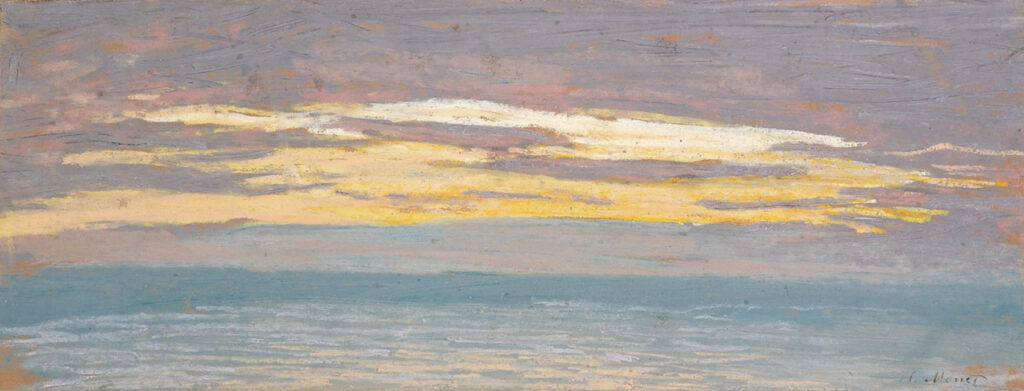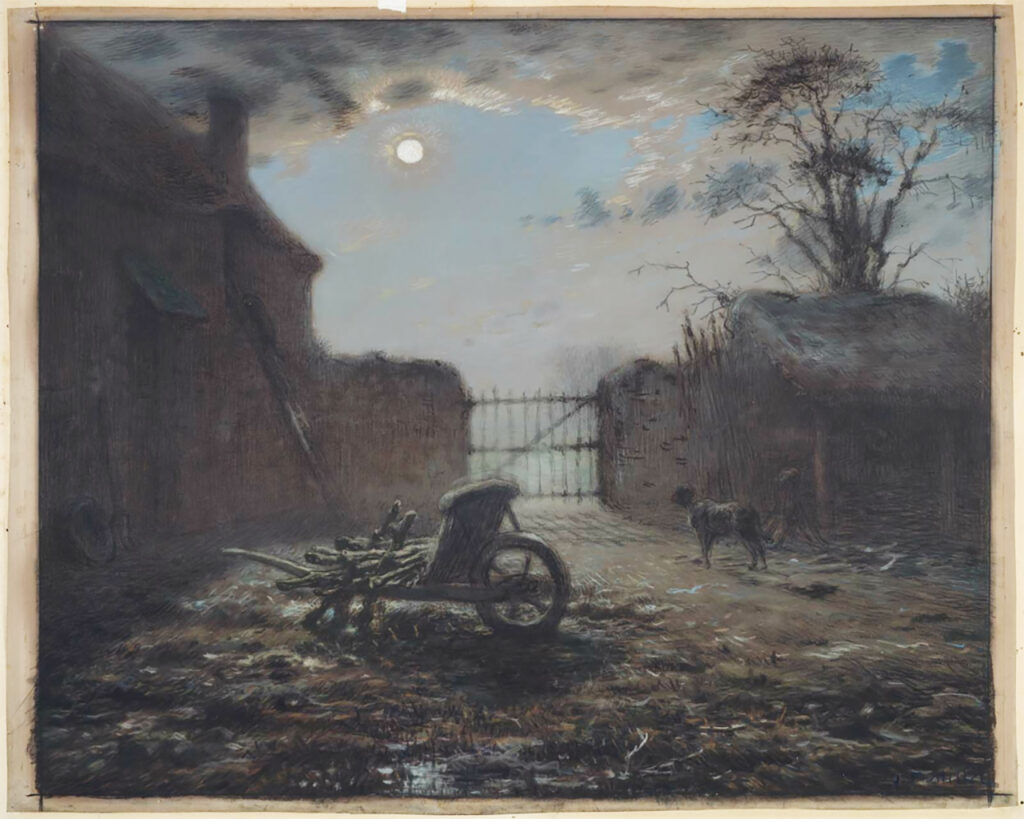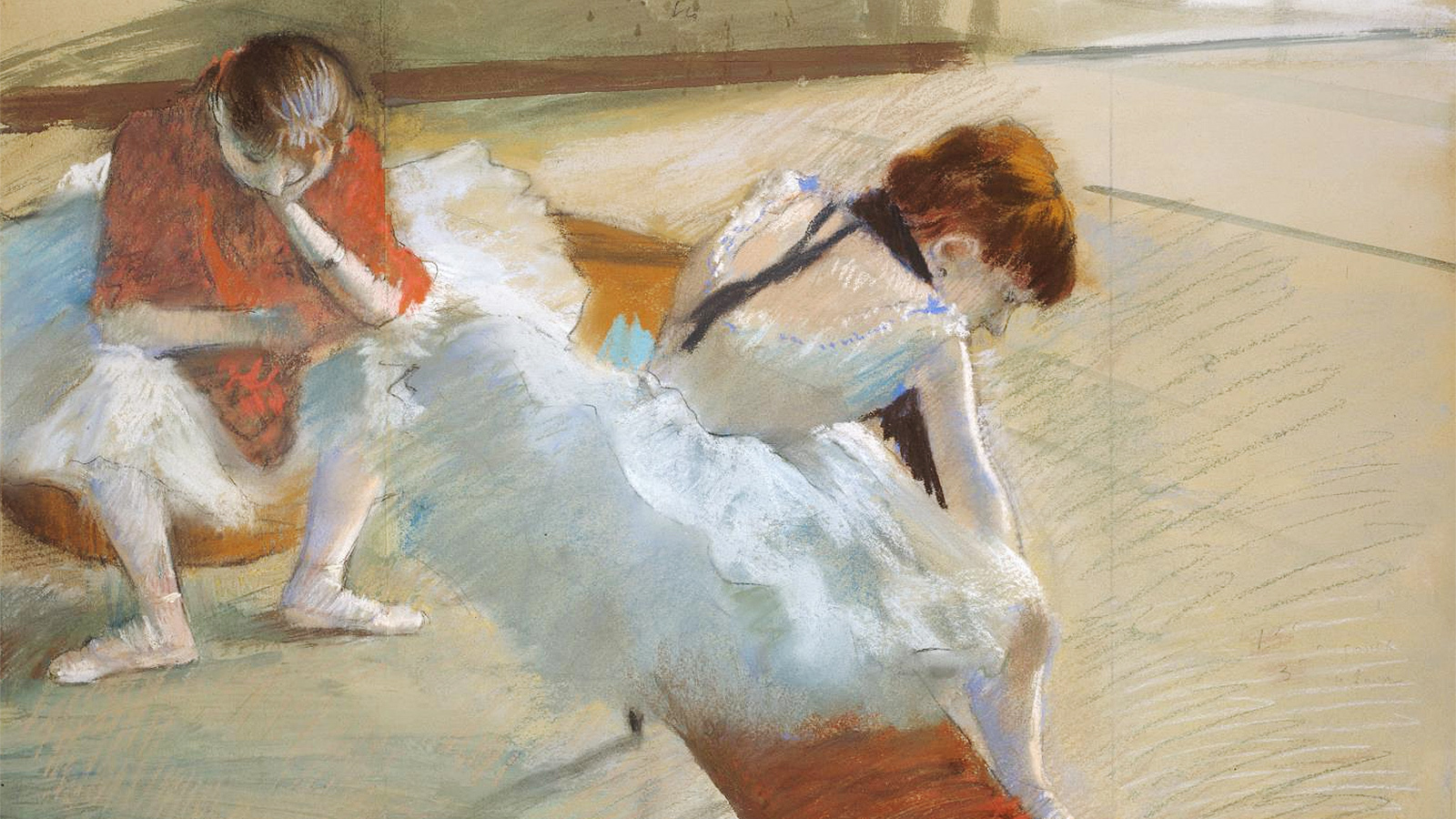Impressionism is enjoying quite the second life across the new media landscape. The likes of Monet and Van Gogh have, of course, been the subject of many an immersive experience, and now, a clutch of French Impressionists are headed onto the blockchain. As announced yesterday, the Museum of Fine Arts, Boston (MFA Boston) is the first US institution to team up with NFT platform LaCollection to auction a series of NFTs, minted from its trove of Impressionist pastels.
What’s happening

The sale features 24 rarely-seen artworks from MFA Boston’s collection, including Monet’s “View of the Sea at Sunset” (above). Image: MFA Boston
This week, pre-sale registration opens for the NFT collection, French Pastels: Treasures from the Vault, which, on July 13, will see 24 artworks auctioned or sold at fixed prices beginning at €299 ($314). On the block are works such as Claude Monet’s “Broad Landscape,” Jean-François Millet’s “Farmyard by Moonlight,” and Edgar Degas’ “Dancers Resting” — all rarely exhibited canvases from MFA Boston’s holdings.
The sale itself promises to be a gamified experience, inviting collectors to unlock a range of benefits and rewards. A purchase of two NFTs, for example, will grant the buyer a third one from the same collection, while a Secret Box containing a surprise pastel will also be available for purchase. Such a model was also implemented by LaCollection for its earlier Egon Schiele drop with Leopold Museum.
Proceeds from the sale are intended to go toward the museum’s conservation of two Degas paintings (“Edmondo & Therese Morbilli” and “Father Listening to Lorenzo Pagans Playing the Guitar”), which effectively means buyers of these NFTs are patrons too. And they’ll be treated as such: NFT holders will be granted access to benefits at MFA Boston including exhibition previews, curator events, membership programming, and behind-the-scenes viewings.
Finally, the NFT drop is set to culminate in a collaborative exhibition on July 29, when MFA Boston and LaCollection will showcase a series of Monet NFTs in the painter’s hometown of Giverny in France.
Why it matters

“The funds generated will support the care of paintings from the Impressionist collection, enabling the Museum to continue sharing them with the public for generations to come,” says MFA Boston’s Eric Woods. Image: “Farmyard by Moonlight” by Jean-François Millet / MFA Boston
MFA Boston is the latest (and won’t be the last) cultural institution to tap the revenue-generating possibilities of NFTs, trailing similar auctions by the British Museum and State Hermitage Museum. While the profits to be made from such sales remain in question — the Uffizi Gallery, for one, reportedly netted only €70,000 from its €240,000 sale of a Michelangelo NFT — it’s likely welcome for a venue that saw its visitorship fall from 1,351,966 in 2019 to 201,000 in 2021. With proceeds set to go towards its conservation efforts, the auction, as Eric Woods, MFA Boston’s Chief Operating Officer, put it, “will serve us well into the future.”
Unlike its predecessors, though, MFA Boston’s NFT debut is noteworthy for forefronting a cause (as mentioned, the preservation of the Degas works) and recognizing its buyers as patrons. As highlighted elsewhere on this platform, the sale of NFTs could represent more than a one-off transaction; instead, they could be integrated with IRL utility as an essential form of value-add. That the MFA Boston is building benefits and perks into its NFTs further indicates a longer-term roadmap, which in turn might motivate interest and investment from potential collectors.
What they said
“By minting NFTs of these works by Monet, Degas, Millet and others, we are leveraging new modalities to be able to share our collection more broadly… The funds generated will support the care of paintings from the Impressionist collection, enabling the museum to continue sharing them with the public for generations to come.” — Eric Woods, Chief Operating Officer, MFA Boston
“As a French-owned business, it is fitting to launch with an exquisite exhibition of some of the greatest French artists of the 19th century. It is with great excitement that we can bring this collection to light through our platform and, through the power of technology, share these with audiences in France this summer.” — Jean-Sébastien Beaucamps, CEO and Co-Founder, LaCollection



